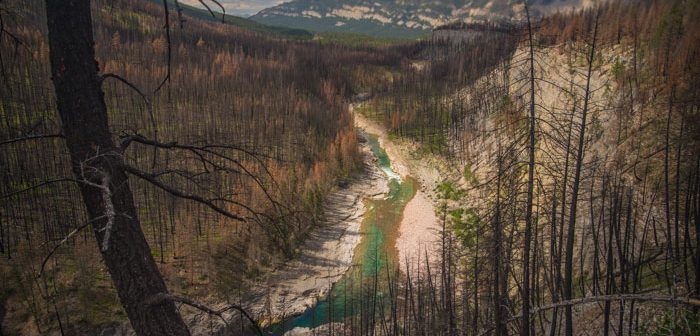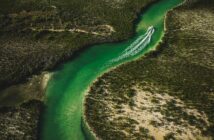 The latest issue of Trout Magazine, which reaches the roughly 160,000 members of Trout Unlimited and beyond, carries a theme of climate change, and covers in-depth how climate change is affecting trout fishing. It also offers detailed discussions on what can be done to help mitigate the effects of climate change. With several features, columns, and numerous photos covering over 30 pages (of the 80-page magazine), this edition of Trout represents some of the most detailed coverage of the climate change issue produced by any media in fly fishing.
The latest issue of Trout Magazine, which reaches the roughly 160,000 members of Trout Unlimited and beyond, carries a theme of climate change, and covers in-depth how climate change is affecting trout fishing. It also offers detailed discussions on what can be done to help mitigate the effects of climate change. With several features, columns, and numerous photos covering over 30 pages (of the 80-page magazine), this edition of Trout represents some of the most detailed coverage of the climate change issue produced by any media in fly fishing.
The lead feature was written by Erin Block (“Climate Change and Trout Fishing”) points out that climatic changes are not new: “The earth’s temperatures have always fluctuated: diving to ice ages and rebounding to warm periods, However, what is indeed novel is the rate at which the current change is occurring, at least 10 times more quickly than the past 65 million years.”
“Our goal with this issue of Trout was to show that TU is serious about climate change, and is engaged in trying to make fixes that keep trout fishing possible for future generations,” said Trout editor Kirk Deeter. “We didn’t spend time pointing fingers and looking at the possible causes of climate change, rather, we focused on the ‘what is’ and what that means to people who fish.”
The magazine specifically details impacts in three key areas: Heat, flood, and wildfire, all of which are already having a profound impact on some trout habitat. Veteran journalists Mark Taylor and Brett Prettyman contributed the flood and fire pieces, respectively.
Seeing how trout depend on cold water, and that 75 percent and upwards of the fly fishing industry revolves around trout products, these are issues that impact all of us. If you haven’t already, please check out the latest issue of Trout (Fall 2016) for the full coverage. You will soon be able to read the lead feature at www.tu.org.
TU and the Trout Magazine editors would like to thank the many advertisers who made this issue covering climate change and trout fishing possible, most notably: Orvis, Sage, Simms, Scott, Costa, Yeti, Cheeky, and Scientific Anglers.




1 Comment
Unfortunately, even with scientific evidence backing up the information, there will still be “non-believers.”
“The good thing about science is that it’s true whether or not you believe in it.”
― Neil deGrasse Tyson